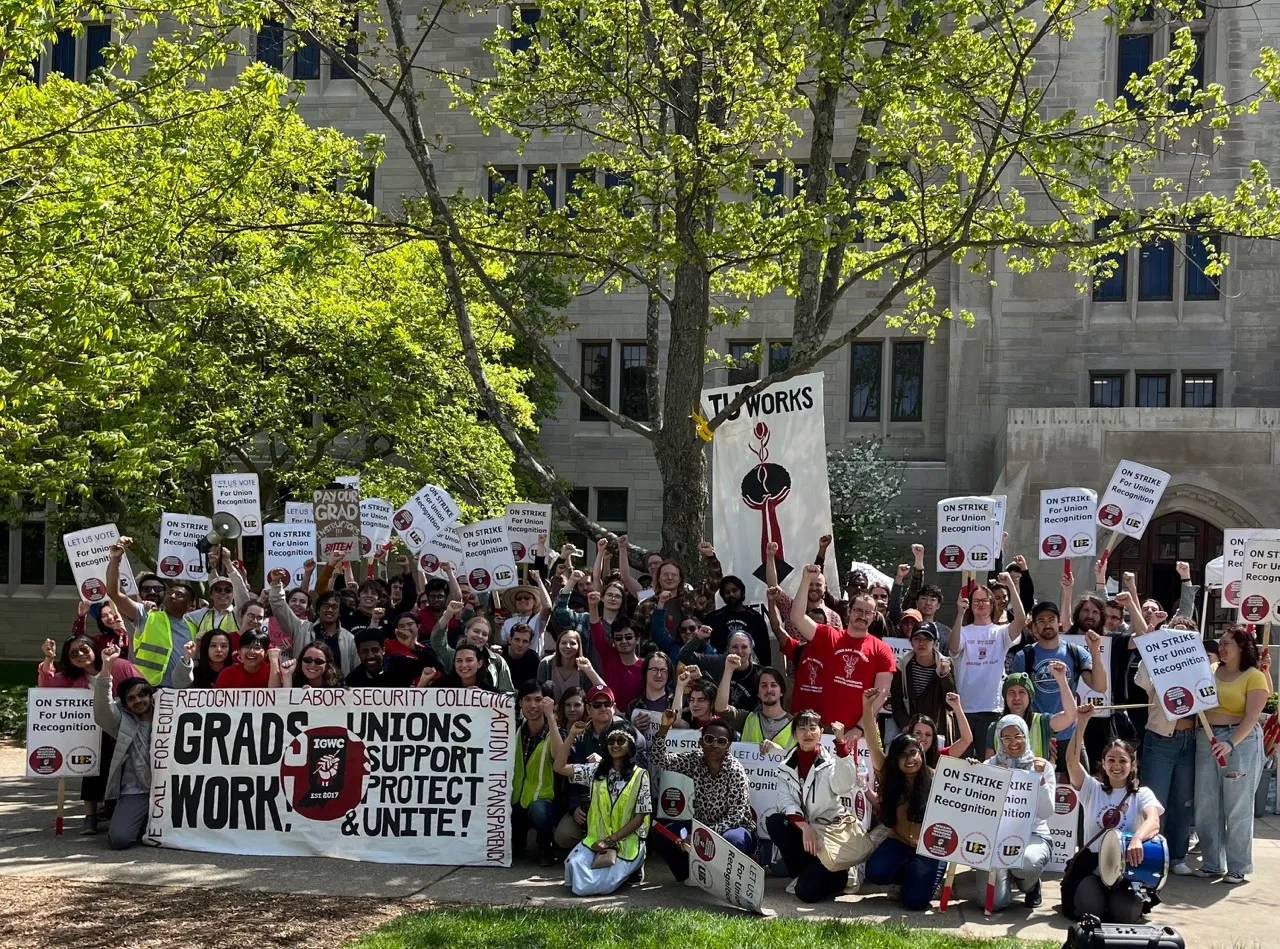Victories
We’ve already won significant material gains for graduate workers through our organizing and collective action, including marches, protests, petitions, and two massive strikes: the 2022 Graduate Worker Strike, and the 2024 “Three Days For A Raise” Strike.

We won wage increases!
- August 2022: After almost 10 years of stagnant wages, IU raised the minimum SAA stipends to $22,000, a 46% increase over the minimum SAA stipend of $15,000 in Fall 2021. Some departments were previously paid as little as $7,000 a year. IU also committed to ensure “minimum stipends and discipline-specific stipend rates remain in the top half of the Big Ten” going forward, with a mandatory review process for SAA stipends to be conducted every two years.
- July 2023: IU gave a 3% raise ($660 a year) to returning SAAs for the 2023–2024 academic year.
- January 2025: IU announces a 4% raise ($1,000 a year) for all graduate workers after protracted meetings following the 2024 Strike.
We ensured international student’s status!
- April 2025: When the Trump administration revoked visas status for several graduate workers, we launched a protest and negotiation that forced IU to ensure a flexible pathway to degree for anyone impacted, active monitoring of the SEVIS database, and non-cooperation with the Department of Homeland Security without a warrant.
We eliminated fees, including international student fees!
- August 2022: IU waived the mandatory graduate student fees of $1,435 paid by all SAAs as well as some course-specific fees for SAAs in programs that charge them.
- September 2022: IU waived the international student fee and the G901 fee for SAAs.
We won healthcare and other benefits!
- October 2022: IU changed its Leaves of Absence policy to provide full insurance benefits to SAAs on medical or parental leave, including unpaid leaves, for up to six months.
- May 2023: IU restored the SAA Affairs Committee on the Bloomington Faculty Council (BFC), and the BFC passed a new policy for the SAA Board of Review, which reviews graduate student grievances and complaints related to the terms and conditions of their academic appointments.